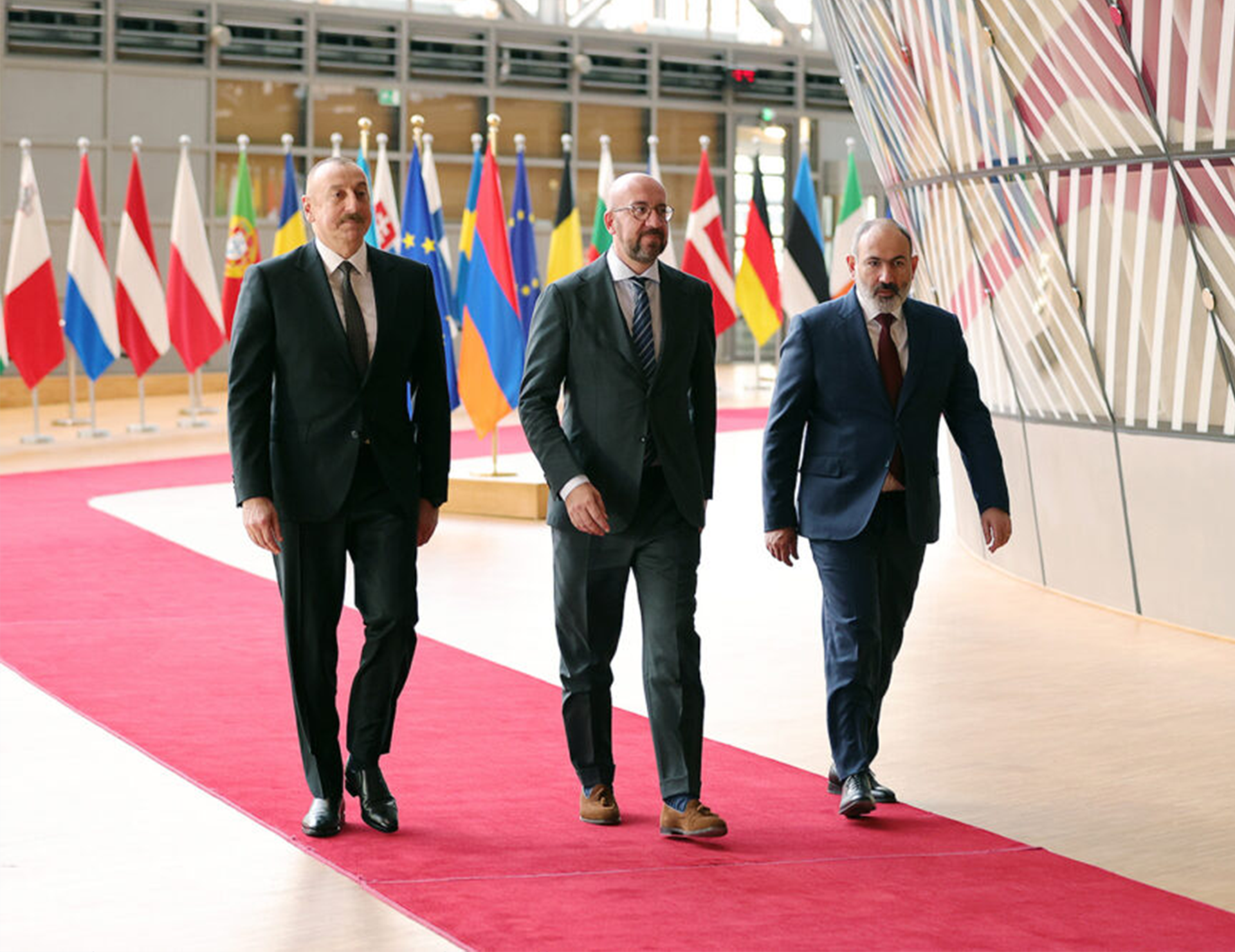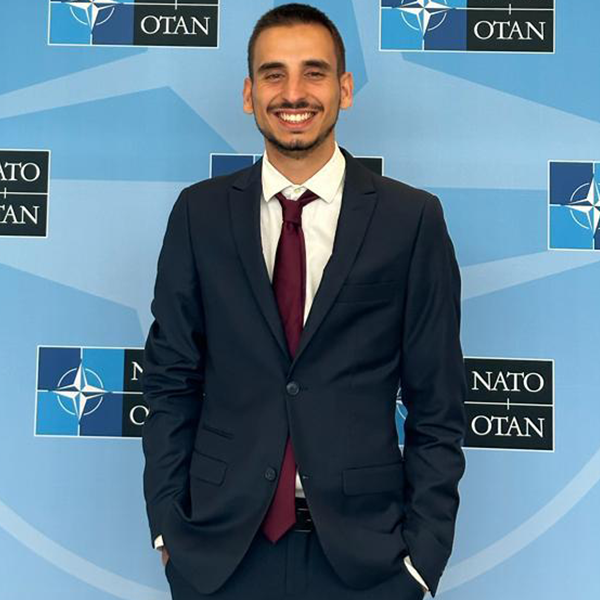EU mediation during Armenia-Azerbaijan conflict: process and mistakes

The position of the European Union as a great power has always been precarious: while being undoubtedly one of the economic superpowers with a huge normative influence, its capacity to exercise political influence around the world remains somewhat limited. That’s why Brussels’ potential as a mediator in inter- and intrastate conflicts is yet to be fully uncovered. It is in this regard that the EU’s attempts to play an active role in the reconciliation between Azerbaijan and Armenia as a mediator of choice, launched since the end of 2021, are so important. Since that time, there have been meetings between the actors involved on a regular basis, being constant throughout 2022 and 2023. It should be noted that in the last year, but especially since last May, these meetings have been more and more frequent.
In order to understand the EU mediation process, it is worth going back to the first meetings held between Armenia, Azerbaijan and the EU, which began to take place in 2021. The meetings in question had a transversal character, as a large number of issues were discussed during the meetings. An example of this was the meeting between Aliyev, Pashinyan and Michel on April 6, 2022, when they met in Brussels, agreeing to convene a Joint Border Commission by the end of the same month, and the restoration of connectivity infrastructure between the two countries. Although agreements were reached in the meetings prior to the April 2022 meeting, the reality is that these were only symbolic and didn’t require high commitments from either side. Nevertheless, the meeting was one of the most fruitful since the beginning of the process, as the idea of a possible long-term peace agreement was put on the table.
Since that date, the trilateral meetings were intensified, being held more regularly and addressing more important issues. Specifically, during the following meetings progress was made, especially regarding the mutual recognition of each other’s territorial integrity and borders on October 6, 2022 at the Prague Summit. Despite that, the friction between the two countries on this issue continued for a long time, meaning that the Prague declaration this far remains a largely symbolic act.
The last, and most important, phase of the mediation took place as of May 14, June 1 and July 15, 2023 meetings. During the last phase of the negotiations, the problems related to the Lachin corridor and the signing of a possible peace treaty were major issues on the table, which, while not the only topics on the table, certainly played an important role in the meeting. Beyond the issues dealt with, it’s worth noting the intensity with which they were addressed. With the entry of the third phase, the actors began to show greater commitment, raising fundamental issues for the future of the region.
This mediation, however, has failed, or at least partially. Everything changed September 19, when Azerbaijan launched an anti-terror operation to regain full control of the remains of the self-proclaimed Nagorno-Karabakh Republic. This event, for obvious reasons, demonstrated the failure of the mediation between the EU and the Caucasian governments, being a turning point not only for the region, but also for the role of Brussels as a mediator which had failed to find mechanisms to ensure voluntary demilitarisation of Karabakh with the help of official Yerevan.
Beyond the crisis in the mediation process that emerged as a result of the anti-terrorist operation in Azerbaijan, there was another big blow on its mediator credentials; the resignation of Azerbaijan to participate in the five-party meeting (with Armenia, France, Germany and the EU). The meeting was scheduled to take place in Granada, within the framework of the European Summit, being a very important event on the EU diplomatic agenda, since it was to be the first meeting between the two countries after the last escalation in Karabakh.
The change of position made by Azerbaijan was due to the announcement by the French Foreign Minister, Catherine Colonna, that France was going to send military equipment to Armenia, which wasn’t welcomed by Baku, as the gesture in question was understood as a warmongering action on the part of Paris. As France was one of the countries that was to have a place at the mediation table in Granada, Azerbaijan decided not to attend, as it didn’t consider Paris a valid interlocutor. Although France is a key member of the EU, for a number of reasons it takes its own specific position across a range of political issues, including Armenia. According to statistics, France is one of the countries in the world with the largest Armenian diaspora, with around 500,000 Armenians and French people of Armenian descent currently living in the country, a situation that certainly affects Paris's foreign policy. Moreover, French assistance to Armenia also has a geostrategic value, since after Yerevan's estrangement from Moscow there is a vacuum of influence in the region that can be at least partially occupied by France, which is one of the objectives of the arms shipments to Armenia. In addition to Azerbaijan's discontent with French presence at the negotiating table, there was another point of disagreement over the configuration of the table. Baku proposed that Türkiye, as a regional power, should take part in the meeting in question, which was rejected by Berlin and Paris, causing Azerbaijan’s displeasure.
Beyond the recent failures of the EU as mediator, both for Azerbaijan's 24-hour operation in Karabakh and for the failure of the five-party meeting in Granada, the EU has managed to maintain the support of both actors, as Hikmet Hajiyev, Aliyev's advisor, himself emphasized, stating that “Azerbaijan supports the tripartite Brussels process and the regional peace agenda in the format of the European Union, Azerbaijan and Armenia”. The big question one has to ask is: where has the European Union failed as a mediator to bring us to this point? The answer, while not easy to elaborate, can be summarized in three points: the non-invitation of Türkiye, the unilateral approach to the meetings and the "Karabakhization" of the negotiations.
The refusal by Germany and France to allow Türkiye to take part in the five-party meeting that was to take place in Granada was a big mistake on the part of the Western countries. While it is clear that Türkiye isn’t a neutral party in the conflict, its role as a regional power makes it a very relevant figure in the struggle between the two countries. Moreover, under Baku's perspective, the presence of the country in question would have made a certain counterweight to the French participation, since the proposed format was perceived by Azerbaijan as pro-Armenia. In this regard, it should be recalled that Russia, a country that has historically been Armenia's partner, is also acting as a mediator in the conflict at a parallel table, being another case of a regional, and in this case also a global, power.
Another EU mistake has been not to give equal priority to the territorial claims of both countries. Due to the complicated pattern of the Soviet-time border delimitation, both Azerbaijan and Armenia have claims to their exclaves within the other’s territory, and, although it is an issue that has been discussed in depth during the meetings, the emphasis has been placed on the Armenian case, leaving the claims in the background. Armenia claims the territory of Artsvashen, while Azerbaijan claims Karki, Yukhari Askipara, Barkhudarly and Sofulu. The territories claimed by Azerbaijan are controlled by Yerevan, the opposite being the case with Artsvashen. The EU should have given the same order of priority to all claims, studying, case by case, the most convenient way to solve the situation.
The last mistake, and undoubtedly the biggest of them, is the “Karabakhization” of the negotiations. Since the beginning of the negotiations, the Karabakh issue has had a great weight, which has been increasing, although actually issues such as borders or connectivity were also on the table. In this sense, it's remarkable that in the media, especially in the West, the analysis of the negotiation process has been reduced to the issue of Karabakh, omitting the other issues, including the restoration of Azerbaijan's connectivity with its major exclave Nakhchivan, that is essential for Baku both economically and from the security point of view. According to the 09.11.2020 ceasefire agreement, Armenia pledged to facilitate the connection between the exclave and Azerbaijan, but since then hasn’t fulfilled this agreement, dealing a blow to Baku. In this regard, it should be noted that Tehran and Baku have recently reached an agreement on building a corridor through Iran. Armenia has tried to regain initiative by launching the "Crossroads of peace" project, which proposes a whole series of land connections in the South Caucasus, including a corridor between Nakhchivan and mainland Azerbaijan. Against this background, and also given Baku’s frequent statements that the issue of Karabakh has been resolved, it would have made more sense to de-emphasize it as much as possible. It should also be noted that one of the achievements of the Brussels process was a pronounced rhetorical shift, as the EU started to address the citizens of Karabakh with the words "Armenian population of Karabakh" in accordance with the terms used by Baku, instead of "People of Karabakh".
From the above it can be concluded that EU-level mediation has had a certain degree of importance in recent developments in the region, bringing however very controversial results this far. The mediation, though marked by different thematic stages, has focused on the Karabakh issue, leaving other issues in the region on the back burner. While a further meeting between the three parties in Brussels had been agreed upon, later it was canceled. In addition, it is worth mentioning the meeting between Azerbaijan and Armenia in Tehran, with Iran as a mediator on October 23, which reveals how both parties to the conflict have sought the help of other countries in view of the stalemate now facing the Brussels process. After the anti-terror operation in Azerbaijan, there has been a 180-degree shift in mediations, leaving the EU's position up in the air. In this context, it remains to be seen which actor will establish itself as a mediator between the two countries, although it appears that Brussels will not be the one to play such a role.







